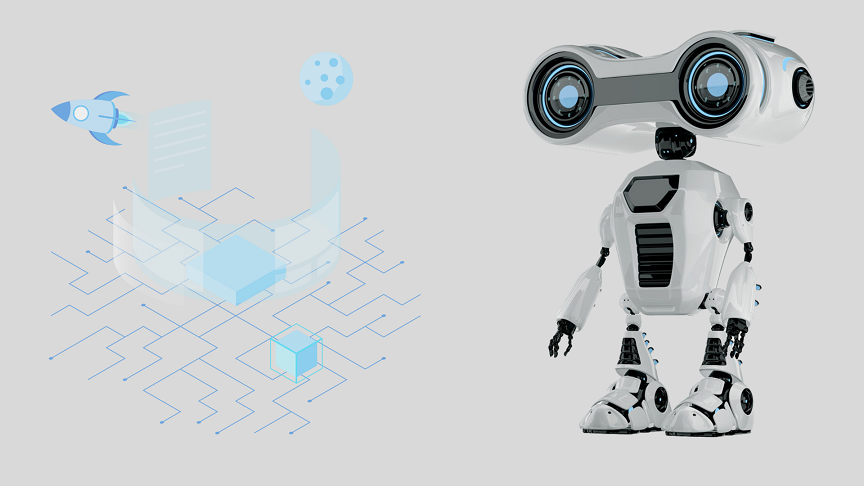An Overview to Scientific Breakthroughs
Scientific breakthroughs represent pivotal moments in human history, marked by discoveries or innovations that significantly advance knowledge and technology. These advancements have the potential to transform not only individual industries but also the world at large. As we delve into the top scientific breakthroughs of 2024, it is essential to recognize the diverse fields in which these innovations occur, including medicine, technology, space exploration, and environmental science. Each breakthrough contributes uniquely to our understanding and capability, demonstrating the interconnectedness of scientific endeavors.
In the realm of medicine, groundbreaking innovations have led to enhanced treatments, improved diagnostics, and revolutionary preventative strategies. These advancements are pivotal in extending life expectancy and improving the quality of life for countless individuals. Similarly, technological breakthroughs continue to reshape our daily experiences and interactions, driving the evolution of industries such as communication, transportation, and energy. As we venture beyond our planet, space exploration breakthroughs ignite curiosity and ambition, further extending humanity’s reach and understanding of the cosmos.
As we navigate through 2024, the importance of being cognizant of these scientific breakthroughs cannot be understated. They represent hope, progress, and the potential to improve human existence dramatically. Understanding these innovations allows us to appreciate their function in shaping a better future for all.
Revolutionary Medical Treatments
In 2024, one of the most remarkable medical breakthroughs emerged, reshaping the landscape of patient care and treatment methodologies. This significant advancement centers around innovative therapies that leverage cutting-edge technology to address previously untreatable conditions. The integration of gene therapy, advanced biomaterials, and artificial intelligence in treatment protocols signifies a transformative shift in healthcare, promising improved patient outcomes.

Recent trends indicate that medical professionals are now utilizing gene editing techniques, such as CRISPR, to target and correct genetic abnormalities. This revolutionary approach not only enhances the possibility of curing genetic diseases but also paves the way for personalized medicine, where treatments are tailored to individual genetic profiles. As a result, patients suffering from conditions like cystic fibrosis and certain types of muscular dystrophies are witnessing improved prognoses due to targeted interventions.
Advanced bioengineered materials have been developed for implantable medical devices, marking another noteworthy innovation. These treatments provide enhanced functionality and biocompatibility, enabling better integration with the human body. For instance, cardiovascular devices designed from biodegradable materials are showing promise in reducing long-term complications associated with traditional implants, thus significantly improving patients’ quality of life.
Moreover, the application of artificial intelligence in diagnostics and treatment planning is enhancing the precision and efficiency of medical care. AI algorithms can now analyze vast amounts of medical data rapidly, leading to accurate diagnoses and more effective treatment strategies.
Cutting-edge Advancements in AI
In 2024, the field of artificial intelligence (AI) witnessed a transformative advancement that has considerably improved various aspects of machine learning, natural language processing, and automation. This breakthrough encompasses a sophisticated algorithm designed to enhance data interpretation and decision-making processes across diverse sectors, including finance, healthcare, and education. The introduction of this advanced AI system enables machines to analyze vast amounts of data with unprecedented accuracy, resulting in faster and more informed choices.

In the finance sector, the new AI capabilities have redefined quantitative trading strategies and risk management protocols. Financial institutions are leveraging machine learning algorithms to identify market patterns and predict stock fluctuations, thus optimizing investment performance. Furthermore, these advanced AI technologies facilitate efficient fraud detection measures, safeguarding consumers and promoting confidence within financial markets.
Healthcare is another domain significantly impacted by this AI advancement. With improved natural language processing abilities, healthcare providers can better interpret patient data, streamline operations, and enhance diagnostic accuracy. The AI systems can analyze electronic health records and medical literature to assist clinicians in devising tailored treatment plans for patients. This capability has the potential to reduce the likelihood of misdiagnosis and lead to better patient outcomes, ultimately contributing to enhanced public health.
Education also benefits from the integration of cutting-edge AI innovations. These tools enable personalized learning experiences by adapting content to meet the unique needs of each student. Automating administrative tasks allows educators to focus more on instruction and student engagement. However, as these technologies proliferate, ethical considerations surrounding data privacy, algorithmic bias, and the displacement of jobs cannot be overlooked.
Space Exploration Milestones
The year 2024 has witnessed remarkable advancements in space exploration, heralding a new era of discovery and understanding of the universe. Among the most notable achievements is the development of cutting-edge propulsion technologies, which promise to facilitate deeper space travel than ever before. These innovations greatly enhance the velocity and efficiency of spacecraft, allowing for missions that venture further into our solar system and beyond.
One significant technological breakthrough is the successful testing of nuclear thermal propulsion systems. This technology offers a substantial increase in thrust compared to traditional chemical rockets, cutting travel time to distant planets.

Moreover, 2024 has seen the discovery of several new celestial bodies beyond Pluto, thanks to the enhanced capabilities of space telescopes and observational networks. These discoveries not only enrich our cosmic map but also provide valuable insights into the formation and evolution of our solar system. The identification of potentially habitable exoplanets within the habitable zone of nearby stars has reignited interest in the search for extraterrestrial life, prompting further missions aimed at in-depth exploration.
Additionally, advancements in astrophysics, particularly in the study of gravitational waves, have opened new avenues for understanding the fundamental forces of the universe. The ability to detect and analyze these phenomena allows scientists to glean insights regarding the violent events that shape our cosmos, such as black hole mergers and neutron star collisions.
Innovations in Renewable Energy
In 2024, significant strides in renewable energy technology have emerged, showcasing the potential to transform our energy landscape and mitigate environmental challenges. One of the most notable breakthroughs involves advancements in solar photovoltaic systems, which now boast increased efficiency and reduced production costs. These innovations pave the way for a more sustainable energy future, allowing for enhanced energy production, storage, and consumption.

A key aspect of this breakthrough is the development of bifacial solar panels that can harness sunlight from both sides, significantly increasing their energy output. Testing has shown that these panels could provide up to 30% more energy compared to traditional models. This increase in efficiency makes renewable energy sources more viable alternatives to fossil fuels, directly contributing to global sustainability efforts and efforts to combat climate change.
Furthermore, the integration of advanced energy storage solutions has played a critical role in the renewable energy sector’s evolution. Innovations in battery technologies, such as solid-state batteries, exhibit higher energy densities and faster charging times. These advancements not only enhance the reliability of solar and wind energy but also facilitate their utilization during peak demand periods, making them more accessible and efficient for consumers.
The renewable energy sector’s recent innovations are also addressing the issue of reliance on fossil fuels. With these technologies, countries can significantly decrease carbon emissions and establish a decentralized energy grid, promoting energy independence and security. This shift not only represents a substantial leap toward a cleaner and more sustainable future but also positions renewable energy as a viable option for meeting the world’s increasing energy demands.
Advances in Biotechnology
In 2024, a notable advancement in biotechnology emerged, significantly impacting various fields such as agriculture, medicine, and environmental conservation. Central to this breakthrough is the refined application of CRISPR technology, which enables precise genetic editing. This innovation allows scientists to modify the DNA of organisms with remarkable accuracy. By utilizing CRISPR, researchers have successfully engineered crops that are more resilient to pests and environmental stressors, providing a sustainable approach to food production.

One application of this biotechnology advancement that shows great promise is the development of genetically modified crops that reduce the need for pesticides and herbicides. These alterations not only decrease the ecological footprint of agriculture but also enhance crop yields to meet the demands of a growing global population. Furthermore, the improved resilience of these crops ensures better food security amid the challenges posed by climate change.
In the realm of medicine, advancements in biotechnology have led to significant developments in gene therapy. Innovative techniques have emerged that target and repair genetic defects responsible for various diseases, including rare genetic disorders and certain types of cancer.
Moreover, as biotechnology continues to evolve, it raises important ethical considerations. The capability to alter genetic materials in living organisms presents questions about the long-term impacts on biodiversity, ecosystems, and human health. Ethical discussions surrounding biotechnology must consider the balance between its numerous benefits and potential risks. As we witness these advancements, a robust dialogue among scientists, ethicists, policymakers, and the public is essential to guide responsible innovation in this crucial field.
Major Enhancements in Quantum Computing
In the field of quantum computing in 2024, substantial advancements have been made, marking a pivotal point in how computing power is harnessed and applied across numerous domains. Current quantum computers are now capable of performing calculations at speeds that were previously inconceivable. This scientific breakthrough of 2024 is largely attributed to innovations in qubit architecture and error correction mechanisms, enabling systems to maintain stability while processing extraordinarily complex algorithms. Such developments pave the way for tackling previously intractable problems.

One of the most significant implications of these enhancements is their impact on cryptography. Quantum computers possess the potential to crack cryptographic codes that underpin current security protocols, compelling a reevaluation of data protection strategies employed by various industries. In response to these challenges, researchers are actively exploring quantum-resistant algorithms that can withstand the computational capabilities of future quantum machines. This cat-and-mouse game in cybersecurity highlights the necessity for ongoing advancements within the quantum realm.
Furthermore, the progress in quantum computing is not limited to cryptography alone; it also promises groundbreaking innovations in fields such as big data analytics. With enhanced computational capacity, businesses can process vast amounts of data in real-time, leading to more accurate predictions, improved decision-making, and optimized operations. This leap in computing can revolutionize industries like finance, healthcare, and logistics by enabling sophisticated models that analyze scenarios with unprecedented accuracy.
Conclusion: The Future Shaped by Innovations
As we reflect on the top scientific breakthroughs of 2024, it becomes clear that each innovation brings with it the potential to revolutionize various aspects of our lives. The advancements we’ve seen this year not only highlight the ingenuity of researchers and scientists but also underscore the importance of continued investment in scientific research. Whether it be in the fields of medicine, renewable energy, or technology, each breakthrough presents opportunities that may significantly enhance the quality of human life.
In summary, the scientific breakthroughs of 2024 not only demonstrate what is possible through human ingenuity but also serve as a call to action for individuals and communities alike. By staying informed and engaged with the advancements in science and technology, we collectively contribute to shaping a better future for all. Each step we take today in supporting science is a step toward a more innovative and healthier world tomorrow.


